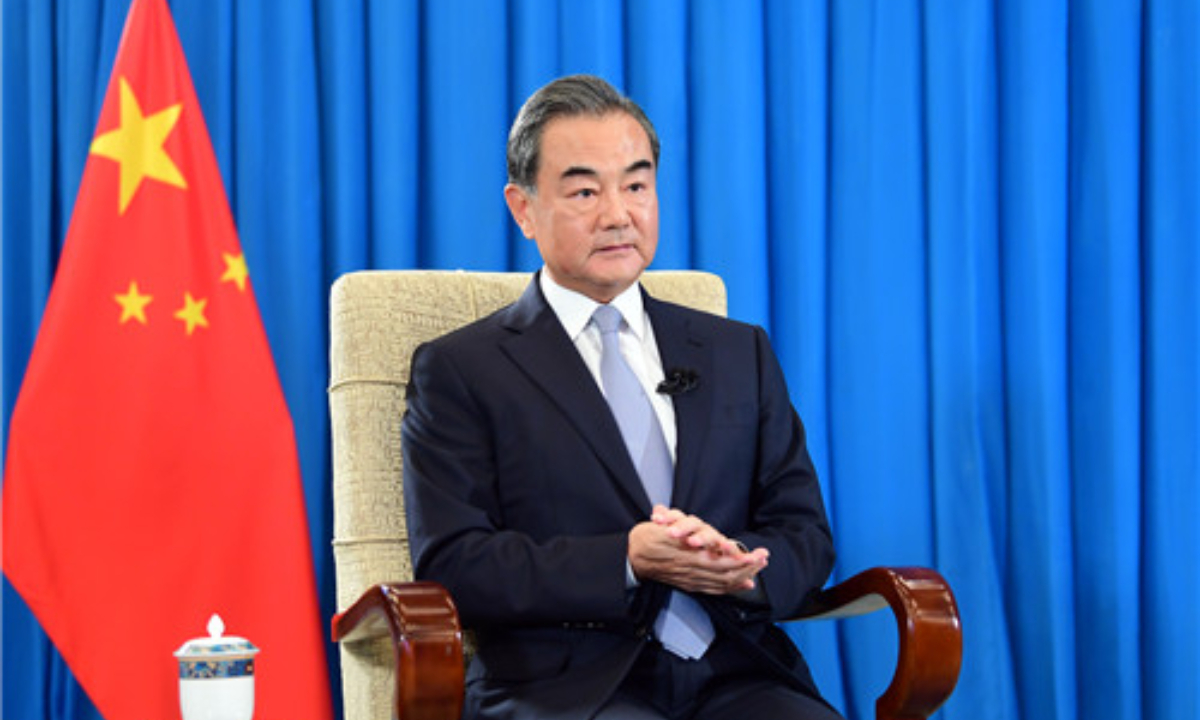BIJING – Given that the US has used the Ren’ai Jiao dispute to incite confrontation between China and the Philippines to serve its own geopolitical strategy, senior Chinese diplomat Wang Yi, during his visit to Singapore and Malaysia, expressed China’s hope that countries in the region will remain vigilant against those behind the scenes and take the leading role in maintaining peace and stability in the South China Sea into their own hands, according to a statement released by the Chinese Foreign Ministry on Saturday.
Over the years, thanks to the joint efforts of China and ASEAN members, the situation in the South China Sea has generally remained stable, which has provided a sound environment for their respective development, said Wang, who is a member of the Political Bureau of the Communist Party of China Central Committee and the Chinese Minister of Foreign Affairs.
Experts believe that Wang’s speech not only shows the real intention behind the hype of the US and other Western countries on the issue, but also conveys China’s willingness to conduct dialogue with the Philippines.
Meeting with the foreign ministers of Singapore and Malaysia to state China’s position not only allowed ASEAN members to hear China’s voice and position without being provoked by the US, but also is an opportunity for the Philippines to recognize China’s position and meet China halfway, Li Kaisheng, vice president of Shanghai Institutes for International Studies, told the Global Times on Sunday.
Although the Philippines is more influenced by the US, other ASEAN members are unlikely to be affected, Li said.
The essence of the South China Sea issue is that in order to establish hegemony in the Asia-Pacific region, the US creates confrontation and division among countries in the region, so as to achieve the purpose of using other countries to “pull the chestnuts out of the fire” for the US, Li Haidong, a professor at the China Foreign Affairs University, told the Global Times on Sunday.
As China and the Philippines have disputed over the Philippines’ illegal transportation of construction supplies to China’s Ren’ai Jiao (also known as Ren’ai Reef), in order to incite Manila to further provoke China to ramp up the tension, several Western countries led by the US have expressed backing for the Philippines’ illegal acts in the South China Sea while condemning China’s legitimate, restrained and professional responses.
China has repeatedly expressed its willingness to resolve differences with the Philippines through bilateral dialogues, Wang Yi said. It is hoped that the Philippine side would abide by the consensus reached in the past, and cherish the mutual trust accumulated through the improvement of bilateral relations, and work with China to meet each other halfway as soon as possible to seek effective ways to manage the maritime situation.
China is ready to work with ASEAN members to accelerate consultations on the Code of Conduct in the South China Sea and strive for an early conclusion of regional rules that are effective, substantive and consistent with international law, including the United Nations Convention on the Law of the Sea (UNCLOS), Wang stressed. It is believed that China and ASEAN members have the capability and wisdom to maintain peace and stability in the South China Sea and build a common home, Wang noted.
Also on Saturday, Wang met with Cambodian Deputy Prime Minister Hor Namhong and Deputy Prime Minister-designate Sun Chanthol in Phnom Penh, with the two sides vowing to further build a China-Cambodia community with a shared future. Cambodia is the last leg of Wang’s Southeast Asia tour, the Xinhua News Agency reported on Sunday.
On the South China Sea issue, the game between China and the US is one between rules and power. China and ASEAN members have been in constant consultation on the Code of Conduct in the South China Sea, which has firmly established a durable and stable pattern between China and Southeast Asian countries. While in the region, the US forces Southeast Asian countries to oppose and confront China in the way of showing its absolute strength advantage. It is believed that the rules supported by China and ASEAN members will eventually prevail, Li Haidong noted.

